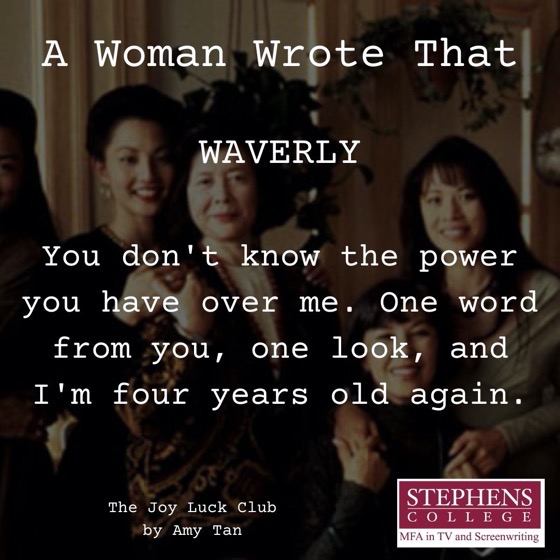Watch this entire presentation
Subscribe to Rosanne’s Channel and receive notice of each new video!
Transcript:
Just in the United States, this show finished a six-season run. It’s from England and we’d always had programming from England because we had that in our national channel always brought in stuff from England because in the United States we think the English folks are smarter and more intellectual than we are right? We think that they’re just better because they have Shakespeare and we don’t. So we like English programming but what I liked was it taught me about a book series I had never heard of right? So I was exposed to some literature from another country that way. likewise, this is from years ago but this book series was a tv show in England that aired in the United States which I liked a lot.
Watch this entire presentation
A Note About This Presentation
A clip from my keynote speech at the 10th Screenwriters´(hi)Stories Seminar for the interdisciplinary Graduation Program in “Education, Art, and History of Culture”, in Mackenzie Presbyterian University, at São Paulo, SP, Brazil, focused on the topic “Why Researching Screenwriters (has Always) Mattered.” I was especially pleased with the passion these young scholars have toward screenwriting and it’s importance in transmitting culture across the man-made borders of our world.
To understand the world we have to understand its stories and to understand the world’s stories we must understand the world’s storytellers. A century ago and longer those people would have been the novelists of any particular country but since the invention of film, the storytellers who reach the most people with their ideas and their lessons have been the screenwriters. My teaching philosophy is that: Words matter, Writers matter, and Women writers matte, r so women writers are my focus because they have been the far less researched and yet they are over half the population. We cannot tell the stories of the people until we know what stories the mothers have passed down to their children. Those are the stories that last. Now is the time to research screenwriters of all cultures and the stories they tell because people are finally recognizing the work of writers and appreciating how their favorite stories took shape on the page long before they were cast, or filmed, or edited. But also because streaming services make the stories of many cultures now available to a much wider world than ever before.
Many thanks to Glaucia Davino for the invitation.
* A portion of each sale from Amazon.com directly supports our blogs
** Many of these books may be available from your local library. Check it out!
† Available from the LA Public Library
Podcast: Play in new window | Download
Subscribe: RSS
![41 UK TV In The US from Why Researching Screenwriters Has Always Mattered [Video] (39 seconds)](https://rosannewelch.com/wp-content/uploads/2020/12/rmw-sao-paolo-41.png)

![40 The Almighty Johnsons from New Zealand from Why Researching Screenwriters Has Always Mattered [Video] (1 minute 12 seconds)](https://rosannewelch.com/wp-content/uploads/2020/12/rmw-sao-paolo-40.png)


![39 My Own Favorite International TV Shows from Why Researching Screenwriters Has Always Mattered [Video] (1 minute 31 seconds)](https://rosannewelch.com/wp-content/uploads/2020/12/rmw-sao-paolo-39.png)
![38 More On International TV Shows and the US from Why Researching Screenwriters Has Always Mattered [Video] (1 minute 18 seconds)](https://rosannewelch.com/wp-content/uploads/2020/11/rmw-sao-paolo-38.png)

![37 International TV Shows and the US from Why Researching Screenwriters Has Always Mattered [Video] (41 seconds)](https://rosannewelch.com/wp-content/uploads/2020/11/rmw-sao-paolo-37.png)
